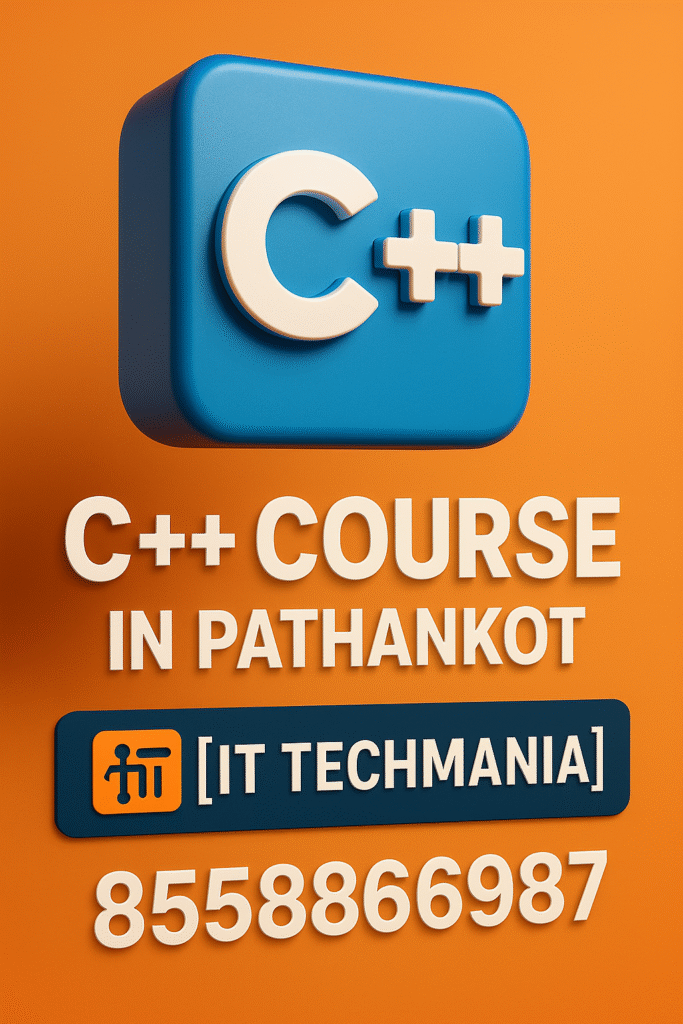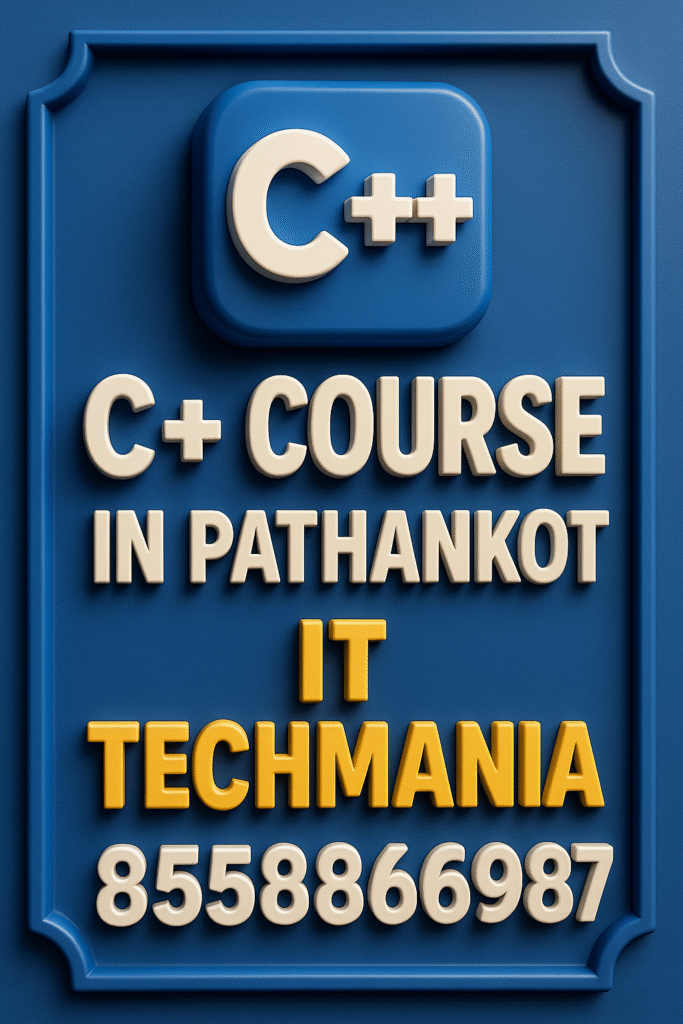🎓 C++ Course in Pathankot – Master Object-Oriented Programming at IT Techmania
Looking to learn C++ in Pathankot? At IT Techmania, we offer a career-focused C++ programming course designed for students, developers, and professionals looking to upgrade their skills in object-oriented programming (OOP).
💡 Why Learn C++?
C++ is a powerful, widely-used programming language essential for software development, game engines, and systems programming. It provides deep control over system resources and performance.
🔍 What You’ll Learn:
-
Basics of C++ syntax and structure
-
Object-Oriented Programming (OOP) concepts
-
Classes, objects, inheritance, polymorphism
-
File handling and data structures in C++
-
Real-world projects and live assignments
-
Debugging and compiling with IDEs like Code::Blocks
📍 Course Highlights:
-
✅ Experienced faculty and practical training
-
✅ Career guidance & job interview prep
-
✅ Certification on course completion
-
✅ Small batches for personalized learning
-
✅ Affordable fee structure
🔗 Outbound Links (add these to improve SEO):
-
📞 Contact Details:
📱 Phone: 8558866987
🌐 Website: ittechmania.com
📍 Location: First floor, Neta Ji Market, Dalhousie Road, opposite Opulence Hotel, near Car Choice, Guru Nanak Nagar, Bhadroya, Pathankot, Punjab 145001


